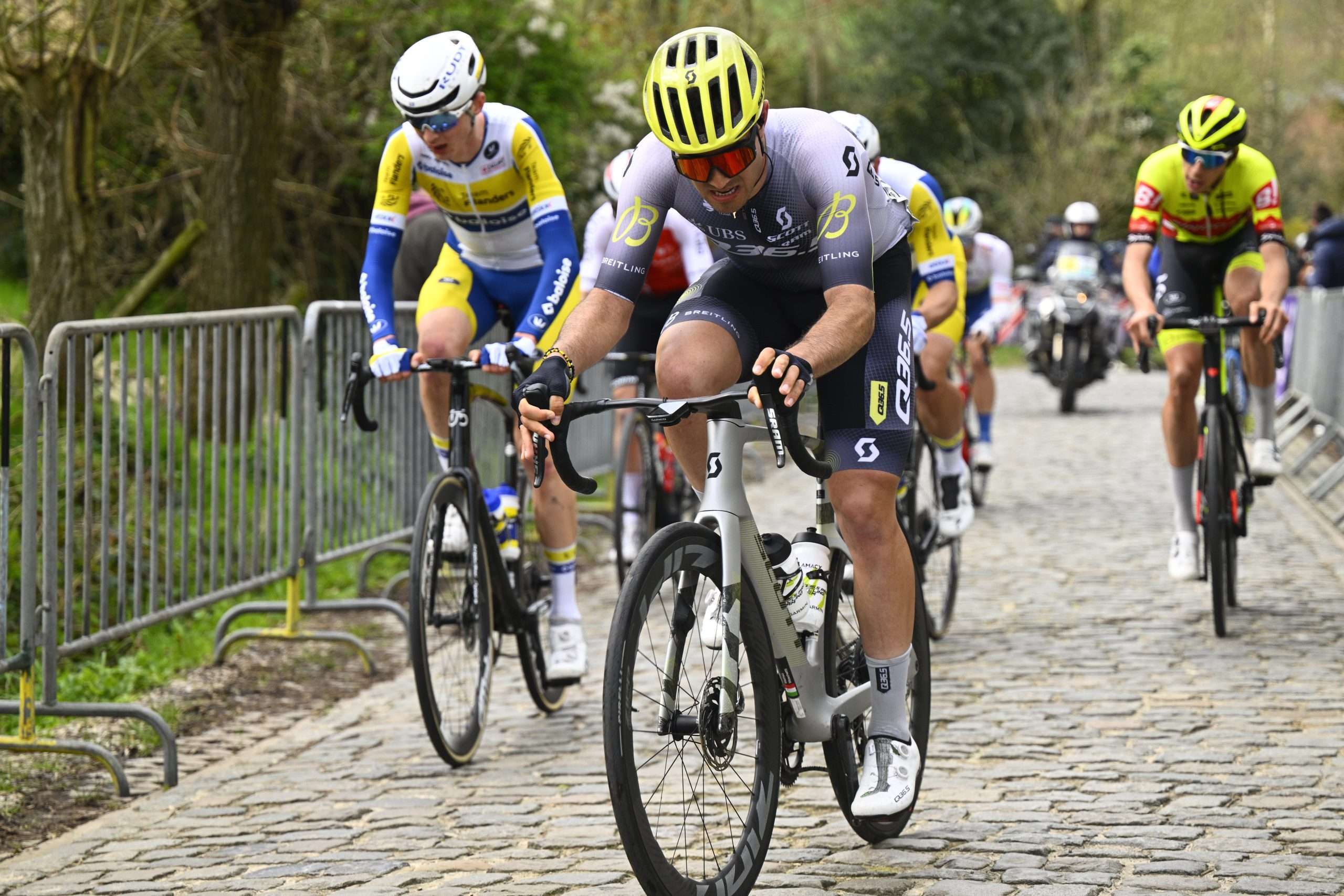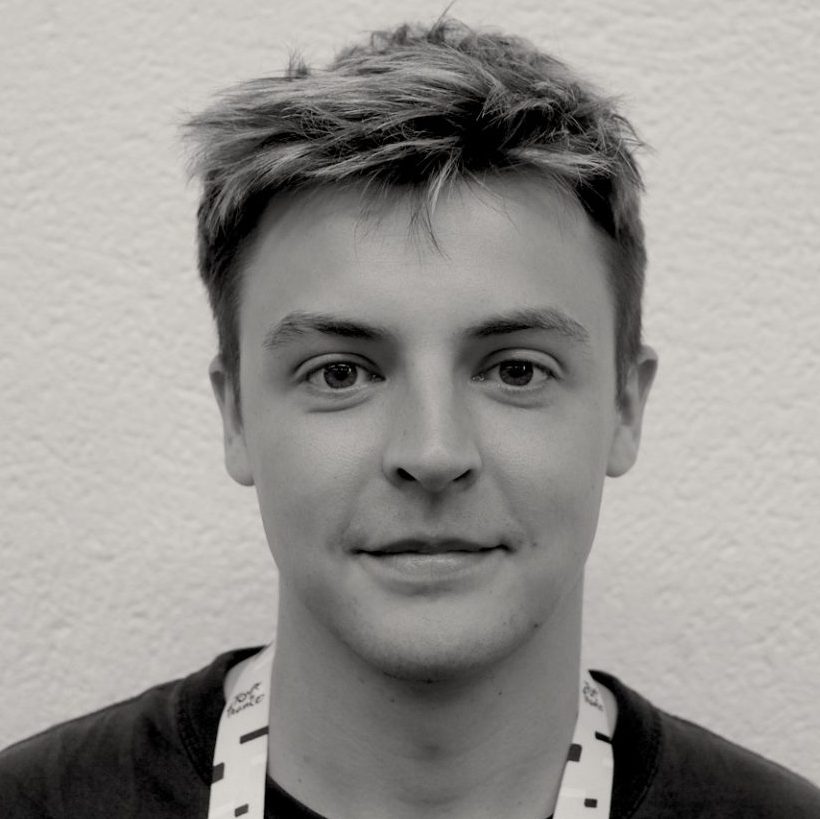The sun is shining on Doug Ryder as he stands outside his team’s bus. After a year away from races as big as Paris-Roubaix, it now seems to be a mere blip, and things are back to the way they were previously.
The demise of his Qhubeka squad is behind him, replaced by a new, greyer strip bearing the logo of title sponsor Q36.5, the cycling apparel brand. A host of WorldTour riders have filled the ranks of the ProTour outfit, and Vincenzo Nibali has even been brought on as technical director.
“It’s been crazy, almost like coming back from the dead to build a team again,” Ryder told Escape Collective a couple of weeks ago before the start of Paris-Roubaix. “And then you’ve got to lobby to get invitations to races, which talks to your credibility, your history, your ethos, so you’ve got to make yourself relevant because otherwise why would they give you an invitation? It’s been really tough.
“Riders wants races and races want riders, it’s almost like the chicken and the egg, which came first? So you’re running around lobbying, doing as much as you can, so building a team and bringing the team to this race…it’s a privilege. To ride the Monuments is an absolute privilege. We’re super fortunate within four months of starting the team to be at the start of a race like this.”
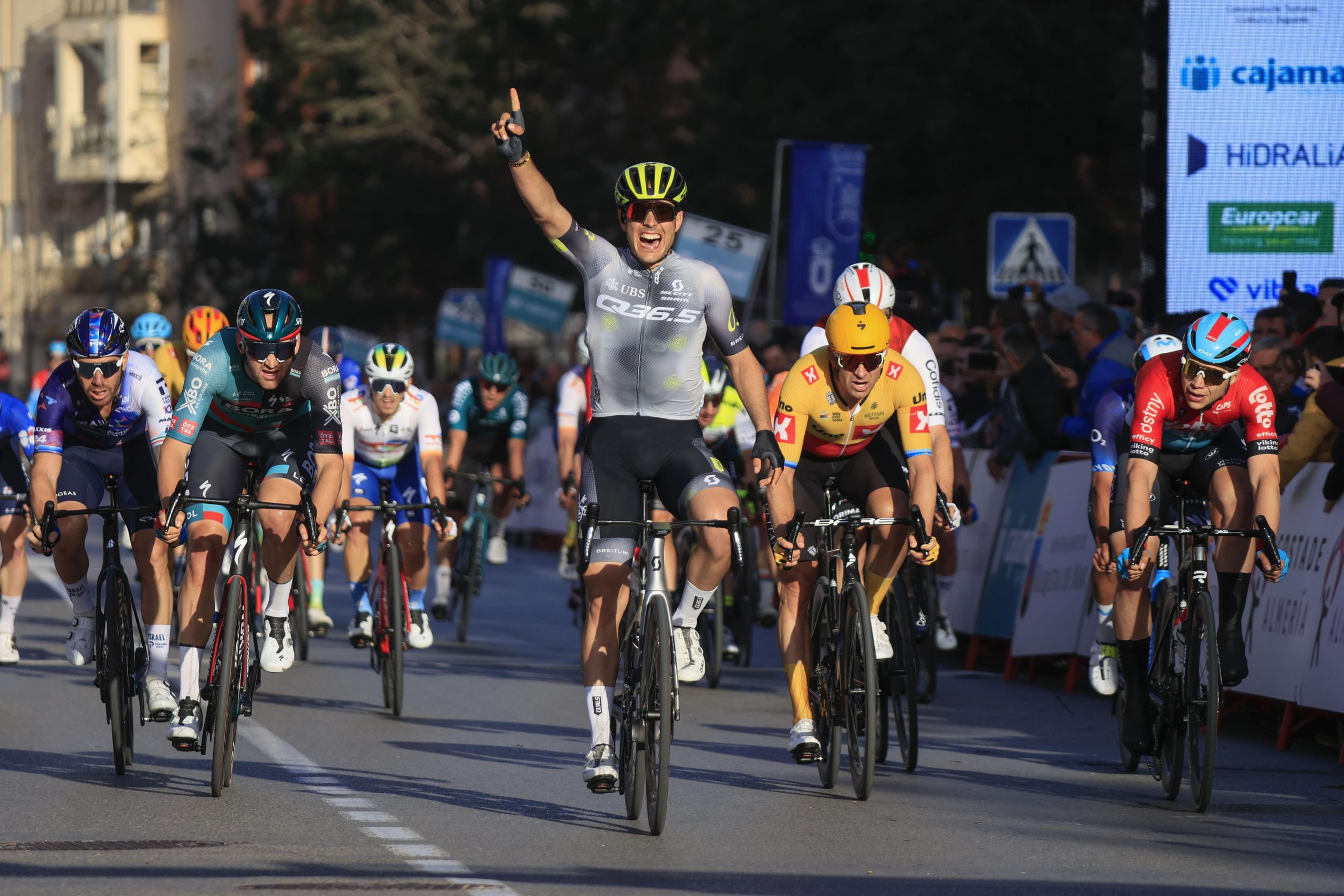
The fact there is a new team at the start of one of the biggest bike races (admittedly one featuring many familiar faces) feels like an anomaly in 2023. Usually, news is of a team’s demise and disappearance from the peloton, rather than the arrival of an organisation with the backing to hire experienced riders such as Gianluca Brambilla and Jack Bauer, as well as promising younger riders like Mark Donovan and Filippo Colombo. How has Ryder managed to seemingly be one of the only ones successfully swimming against the current?
“Cycling has struggled financially always,” he began, “which is strange, because so many people love bikes. Our stadiums are the open roads of the world, a free-to-watch sport [that] connects with people in different ways. It’s not like football or Formula 1, where there are ticket sales and stadiums and stuff, so in there is its complexity and beauty. So you need to find people that are really interested in that, interested in nature and interested in the world we live in today. That’s been difficult, a lot of teams have struggled.
“You’ve got to be different and unique, we care about the planet and being purpose-led, so I think you’ve got to add value and sell it in a different way. But it is tough,” he continued. “You’ve got to differentiate and not compete with other sports. The sport is huge, more people are watching cycling now, more people are riding bikes. Some of the teams have become super strong, it’s almost like Formula 1 where you’ve got these massive teams with depth and quality and everyone else is kind of picking up the scraps. But the beautiful thing about cycling is that the engine sits inside of you, [even] if you have a low budget or you don’t have the biggest riders, and that’s the beauty of the sport and what keeps people watching.”
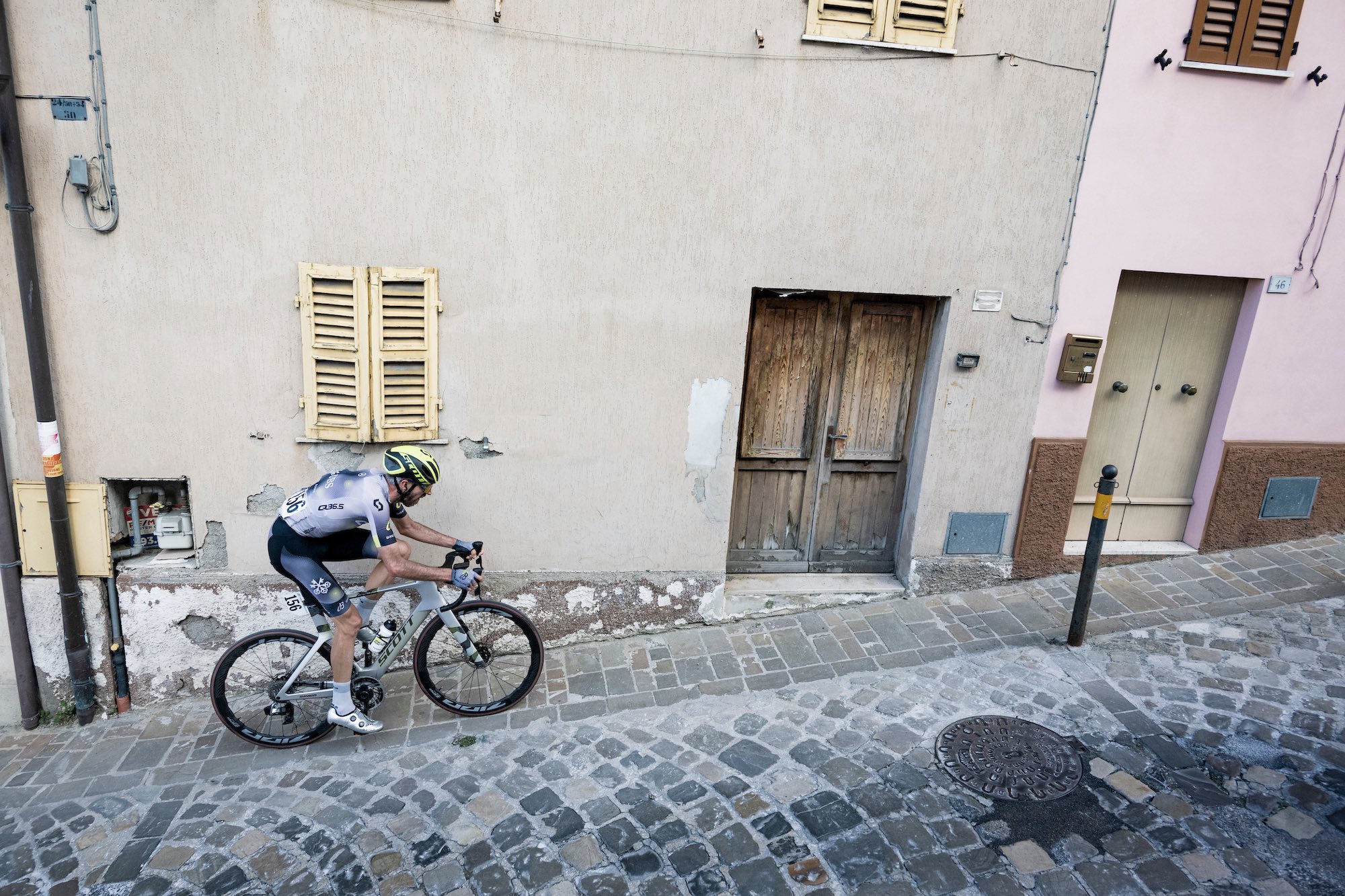
Does he think that rules or a salary cap should be introduced to level the playing field? Or should the laws of the two-wheeled jungle be left alone?
“All sport is like that, money buys depth and quality, but it doesn’t buy success and wins, that comes with passion and heart and drive, focus and preparation.
“But like I said, you’re not sitting in a car, so you always have an opportunity. We’ve shown as a team, winning Tour de France stages with a small budget team just because you have riders with passion and a small, dedicated team around them. That keeps you motivated, which is cool.”
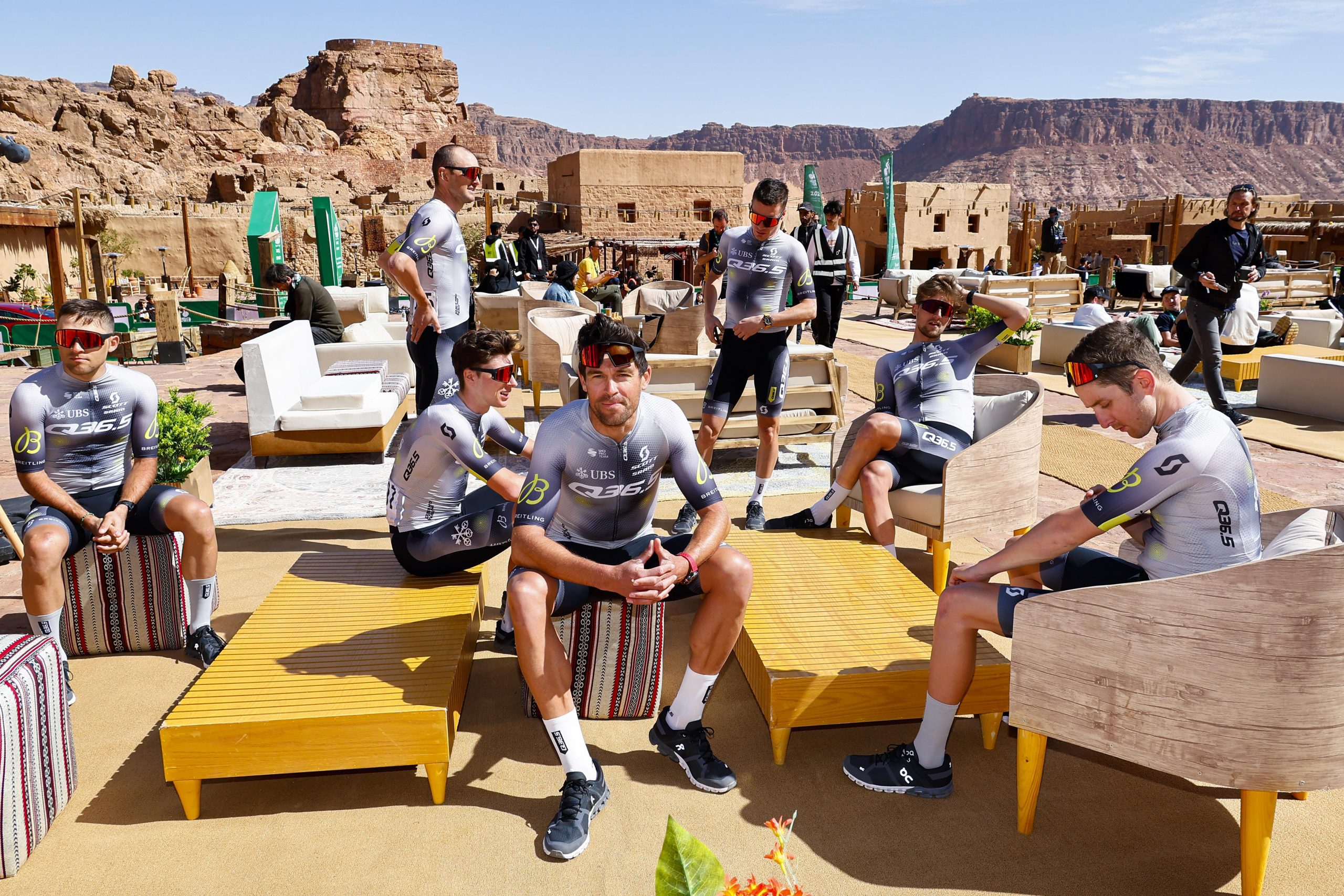
So, the motivation, to return to the Grand Tours that held some of the most beautiful memories for the Qhubeka team? Of Steve-Cummings-shaped pickpocketing of French riders at their own three-week stage race?
“Absolutely it’s an aim,” Ryder said of going back to the Giro d’Italia, Tour de France and Vuelta a España.
“The Grand Tours are the most-watched events so we want to respect all of cycling, we want to be good in the classics and the smaller stage races but we want to be good at the Grand Tours, we hope in 2024 to return to the Grand Tours and to do some significant performances there. We’ve got some great riders that can perform in the Grand Tours. We want to absolutely go there and then rise as a team into the top three ProTour teams and then become a WorldTour team in the future. We want to build slowly and see where we end up.”
What did you think of this story?
